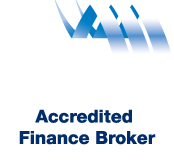What is an owner occupier loan?
An owner occupier loan is simply the name given to a home loan on a property you intend to live in. This is also known as your PPR, or primary place of residence.
Which lenders do you have access to?
We are proud to have access to over 40 different lenders on our panel. This includes all of the major banks, as well as a huge range of non-major, second tier and specialist lenders. The well-known names include; ANZ, Westpac, NAB, CBA, St George, Macquarie, Bankwest. Lesser known but still fantastic options are the smaller lenders such as; Teachers Mutual Bank, Gateway, Auswide, Heritage, Newcastle Permanent, Virgin, Bank of Queensland, ME Bank, Suncorp.
What do I need to provide to apply for a home loan?
What documents and information you need to provide vary wildly depending on your circumstances. That’s why we arrange a short introduction call to understand your financial position before we send you a tailored Information Request. If you’re a PAYG employee then the last two payslips will be required, and if you’re self-employed it might be the last two years of tax returns.
How long does it take to get approval?
The length of time it takes to get an approval will vary depending on which lender you choose to apply for. If timing is important to you, we can factor that into the decision making process as a high priority preference. Once we receive all the relevant information required, we’re able to have an application ready to lodge within 1 business day. Our lender panel has turnaround times from 1 business day to 14 business days, but on average it usually takes around a week.
Should I choose a fixed rate or a variable rate?
Choosing a fixed or variable rate is a big decision and there are a lot of factors to consider. It may depend on what the rates are at the time, as sometimes fixed rates are cheaper and sometimes variable rates are cheaper. You also need to consider your personal circumstances. A variable loan is more flexible if you wish to make additional repayments, or are considering selling your property. A fixed rate will give you certainty of your repayments during the fixed term, which can help you to budget more easily. We can guide you through the pros and cons and help you consider your options.
Am I eligible for First Home Buyer entitlements?
Each state has different schemes available for first home buyers. We work with you to understand your eligibility for the schemes and how they can benefit you. We can look at how to maximise your position using these schemes including the First Home Owner Grants for new builds, or the Home Guarantee Scheme for low deposit and no LMI.
How do I access equity in my home?
Accessing equity in your home can be a simple process. Equity is the difference between the value of the property and the debt remaining. As your property increases in value, and/or you pay down your loan, your equity grows. We can refinance or restructure your loan to include a cash out portion to access the equity. You can use this to invest in more property, consolidate your debts, renovate your home, etc.
What is LMI and do I have to pay it?
LMI stands for Lenders Mortgage Insurance. LMI is an insurance policy that covers the bank in case you default on your loan. LMI is generally payable by the borrower if you are borrowing more than 80% of the value of the property you are using as security. There are times when you don’t have to pay LMI, for example; if you have a guarantor, if you are eligible for an LMI waiver as a professional or medico, if you are eligible for the government’s Home Guarantee Scheme.


